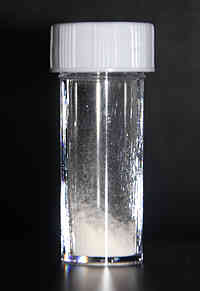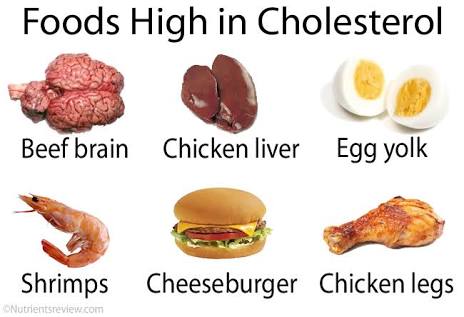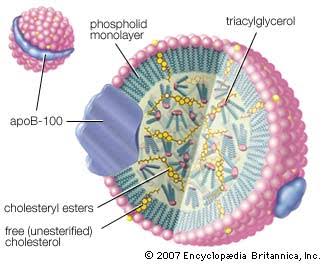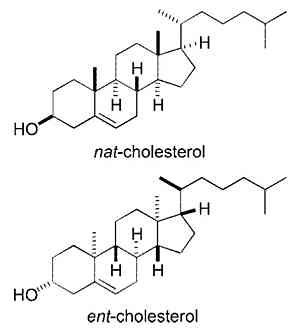Hello dear steemians, I've been away for a while for reasons best known to me, but now? I'm back with a bang!
Bigger and better!!!
This fine Thursday morning,I'd love to brief you about the chemical compound;CHOLESTEROL

Source
Even till know, The leading cause of death in the world is the Ischaemic heart disease, Which eventually when investigated, traces back to CHOLESTEROL.
What is CHOLESTEROL;
Cholesterol, from the Ancient Greek chole- (bile) and stereos (solid) followed by the chemical suffix -ol for an alcohol, is an organic molecule. It is a sterol (or modified steroid), a type of lipid molecule, and is biosynthesized by all animal cells, because it is an essential structural component of all animal cell membranes and is essential to maintain both membrane structural integrity and fluidity.
-Wikipedia
Cholesterol is a waxy substance found in your blood and in your cells. Your liver makes most of the cholesterol in your body. The rest comes from foods you eat. Cholesterol travels in your blood bundled up in packets called lipoproteins.
Cholesterol in it's natural form is in a white crystalline powdery form.
.jpg)
Source
François Poulletier de la Salle first identified cholesterol in solid form in gallstones in 1769. However, it was not until 1815 that chemist Michel Eugène Chevreul named the compound "cholesterine".
Cholesterol has 256 stereoisomers that arise from its 8 stereocenters, although only two of the stereoisomers are of biochemical significance (nat-cholesterol and ent-cholesterol, for natural and enantiomer, respectively), and only one occurs naturally (nat-cholesterol)
When is cholesterol too much?
Cholesterol, when taken in excess does much more harm than good.
Since cholesterol is essential for all animal life, each cell is capable of synthesizing it by way of a complex 37-step process, beginning with the mevalonate pathway and ending with a 19-step conversion of lanosterol to cholesterol. Furthermore, it can be absorbed directly from animal-based foods.
.jpeg)
Source
.jpeg)
Source
Cholesterol is recycled in the body. The liver excretes it in a non-esterified form (via bile) into the digestive tract. Typically, about 50% of the excreted cholesterol is reabsorbed by the small intestine back into the bloodstream.
Cholesterol comes in two forms:
Low-density lipoprotein (LDL); is the “bad,” unhealthy kind of cholesterol. LDL cholesterol can build up in your arteries and form fatty, waxy deposits called plaques.
.jpeg)
Source
High-density lipoprotein (HDL); This is the “good,” healthy kind of cholesterol. It transports excess cholesterol out of your arteries to your liver, which removes it from your body.
.jpeg)
Source
Effects of cholesterol;
Cholesterol itself isn’t bad. Your body needs some cholesterol to make hormones and vitamin D
Having too much LDL cholesterol can be a problem, High cholesterol over times damages your arteries, contribute to heart disease, Getting your cholesterol checked at regular doctor visits can help prevent these and other complications.
When you have too much LDL cholesterol in your body it can build up in your arteries, clogging them and making them less flexible.
Hardening of the arteries is called atherosclerosis. Blood doesn’t flow as well through stiff arteries, so your heart has to work harder to push blood through them. As plaque builds up in your arteries, over time you can develop heart disease.
Plaque buildup in coronary arteries can disrupt the flow of oxygen-rich blood to your heart muscle. This may cause chest pain called angina. Angina isn’t a heart attack, but it can warn that you’re at risk for a heart attack. A piece of plaque can eventually break off and form a clot, which can block blood flow to your heart, leading to a heart attack, or to your brain, leading to a stroke.
Plaque can also block the flow of blood to arteries that supply blood to your arms, stomach, legs, and feet. This is called peripheral arterial disease (Pad)
In the digestive system, cholesterol is essential for the production of bile But if you have too much cholesterol in your bile, the excess forms into crystals, and then hard stones in your gallbladder. Gallstones can be very painful.
While you need some cholesterol for your brain to function, too much of it can be damaging. Excess cholesterol can lead to stroke.
Having high blood cholesterol accelerates the formation of beta-amyloid plaques, the sticky protein deposits that damage the brain in people with Alzheimer’s disease
Keeping an eye on your cholesterol will help you in diagnosing issues before they can lead to heart disease or other complications.
Thank you
Do Resteem, Upvote and comment
.png)

Hello,
We have found similar content:
https://www.dhanvantary.com/diseases-details.php?name=cholesterol-problems
https://en.wikipedia.org/wiki/Cholesterol
http://www.janahealthcare.com/cholesterol.php
Not indicating that the content you post including translations, spun, or re-written articles are not your original work could be seen as plagiarism.
These are some tips on how to share content and add value:
Repeated plagiarized posts are considered spam. Spam is discouraged by the community, and may result in action from the cheetah bot.
If you are actually the original author, please do reply to let us know!
Thank You.
More Info: Abuse Guide - 2017.
Downvoting a post can decrease pending rewards and make it less visible. Common reasons:
Submit
Hi! I am a robot. I just upvoted you! I found similar content that readers might be interested in:
https://www.healthline.com/health/cholesterol/effects-on-body
Downvoting a post can decrease pending rewards and make it less visible. Common reasons:
Submit
Interesting. Reminds me of my school days
Downvoting a post can decrease pending rewards and make it less visible. Common reasons:
Submit